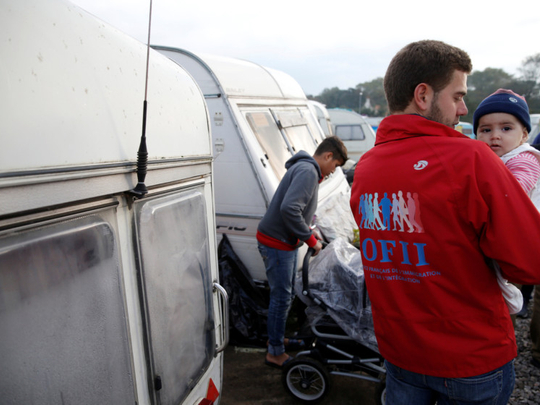
The issue of the Calais refugee camp and the situation of the migrants has sparked conflict between public opinion in the United Kingdom and France. The two countries are attached to broadly the same values and the same goals: Respecting the right to asylum and regulating migration, while honouring both treaty and moral obligations.
But both need to find a common outlook on the current position in Calais if they are to avoid passing between them the blame for a situation that everyone agrees is a disaster.
From the point of view of some in France, the Calais migrants’ misery is entirely down to the selfishness of the British government. London, they believe, is hiding behind the Le Touquet agreements governing controls on entry from continental Europe to the UK. They accuse the UK of using these agreements in an unscrupulous way, as a means of refusing to take in refugees fleeing conflicts in the Middle East, including unaccompanied minors with family connections in the UK. Conversely, the British press is quick to accuse the French government of inefficiency as well as inhumanity. Britain has been accused of being too slow to process asylum applications and of being indifferent to the human stories behind each set of forms.
The reality, of course, is that neither government has chosen to leave people with the right to refugee status in the cold and the mud — women and children least of all. Over the past year, 6,000 people have been moved from the Calais and Dunkirk camps to 164 reception and guidance centres that the French government has opened throughout France, with the aim of integrating the migrants into their host towns.
This method has been proved to work and its success is the reason why the French government has now decided to dismantle the Calais camp for good. Because they share a moral responsibility towards them, the governments of France and the UK are determined to succeed with this operation together. Britain and France must act together to shelter those people who are on their border and who clearly need protection — above all, the most vulnerable among them. The British government has pledged to help solve this crisis by taking in some unaccompanied minors, the vast majority of whom have expressed the wish to go to the UK. Because they share a moral responsibility towards them, the governments of France and the UK are determined to succeed with this operation together. These countries must act together to shelter those people who are on their border and who clearly need protection — above all, the most vulnerable among them. The UK government now needs to intensify this effort, so that every unaccompanied minor can benefit from fair, lasting protection. The first transfers of young people with close relatives in the UK began earlier this week, while France has agreed to take in 13,000 refugees. The British government now needs to intensify its efforts to identify and resettle child migrants.
This humanitarian operation must be supported by long-term measures aimed at making the border impenetrable at Calais and other Channel ports — because if the border is porous, people-smuggling rings will exploit their weaknesses to hold out to their victims the possibility of an illegal crossing to the UK, hiding from them the mortal risks to which they will expose themselves on the way. The UK government has already done a great deal to support these efforts. Thanks to the cooperation between police services in UK and France, 33 illegal immigration networks smuggling people into the UK have already been dismantled in France since the beginning of this year.
In the longer term, neither the UK nor France can abdicate their responsibilities regarding the migration crisis across our continent. For obvious geographical reasons, UK and France are not countries of first entry like Greece and Italy, or even the countries most affected, in terms of flows of refugees. But the UK is the country that invented habeas corpus and France is the country that proclaimed the declaration of the rights of man and of the citizen. Also, Britain and France each exercise singular international responsibilities, stemming from history, defence capabilities and status as permanent members of the United Nations Security Council.
As such, Britain and France must not just prevent migrants from living in precarious conditions on its soil, be it in the area around Calais or on the Kent coast. It must also act together to ensure that refugees aspiring to gain asylum in Europe are dealt with in conditions of solidarity and humanity, in a manner in keeping with the history and the values of the two countries — Britain and France.
— Guardian News & Media Ltd
Bernard Cazeneuve is France’s Minister of Interior.










